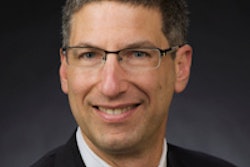The average U.S. physician spends almost 11% of an average 40-year career with an open, unresolved malpractice claim pending against him or her, according to a study published in the January issue of Health Affairs.
The study of nearly 41,000 physicians covered by a national insurer found that the average doctor spent 50.7 months of his or her career with an open malpractice claim pending. Among medical specialists, radiologists landed toward the bottom in terms of the amount of time they had malpractice claims pending during their careers (Health Affairs, January 2013, Vol. 32:1, pp. 111-119).
The mean malpractice claim took 20.3 months to be resolved; the mean time from the incident date to the date the claim was filed was 22.8 months, for a total resolution period of 43 months after the incident. Time to resolution varied significantly based on whether a payment was made to a patient: In cases with no payment, 50% took a year or more to be resolved, while cases in which payments were made were uniformly longer.
Claims were typically resolved more quickly for younger physicians, with a mean adjusted resolution time of 16.4 months for doctors ages 30 to 39, 20.4 months for those 40 to 49, and 21.1 months for those 50 and older.
Diagnostic radiologists spent 10% of their professional careers with an open malpractice claim pending against them, slightly less than the average for all physicians. This compared to approximately 27% for neurosurgeons and 20% for cardiothoracic surgeons, who were at the top of the scale. At the bottom were psychiatrists, with only about 3% of their careers spent with an open claim, and pediatric physicians, with about 7%.
The adjusted mean time to resolution of a malpractice claim against radiologists was 19.1 months, compared with a high of 24.5 months for pediatricians and a low of 13.5 months for nephrologists.
The lead authors of the study were Seth Seabury, senior economist at RAND, and Amitabh Chandra, professor and director of health policy research at Harvard University.



















